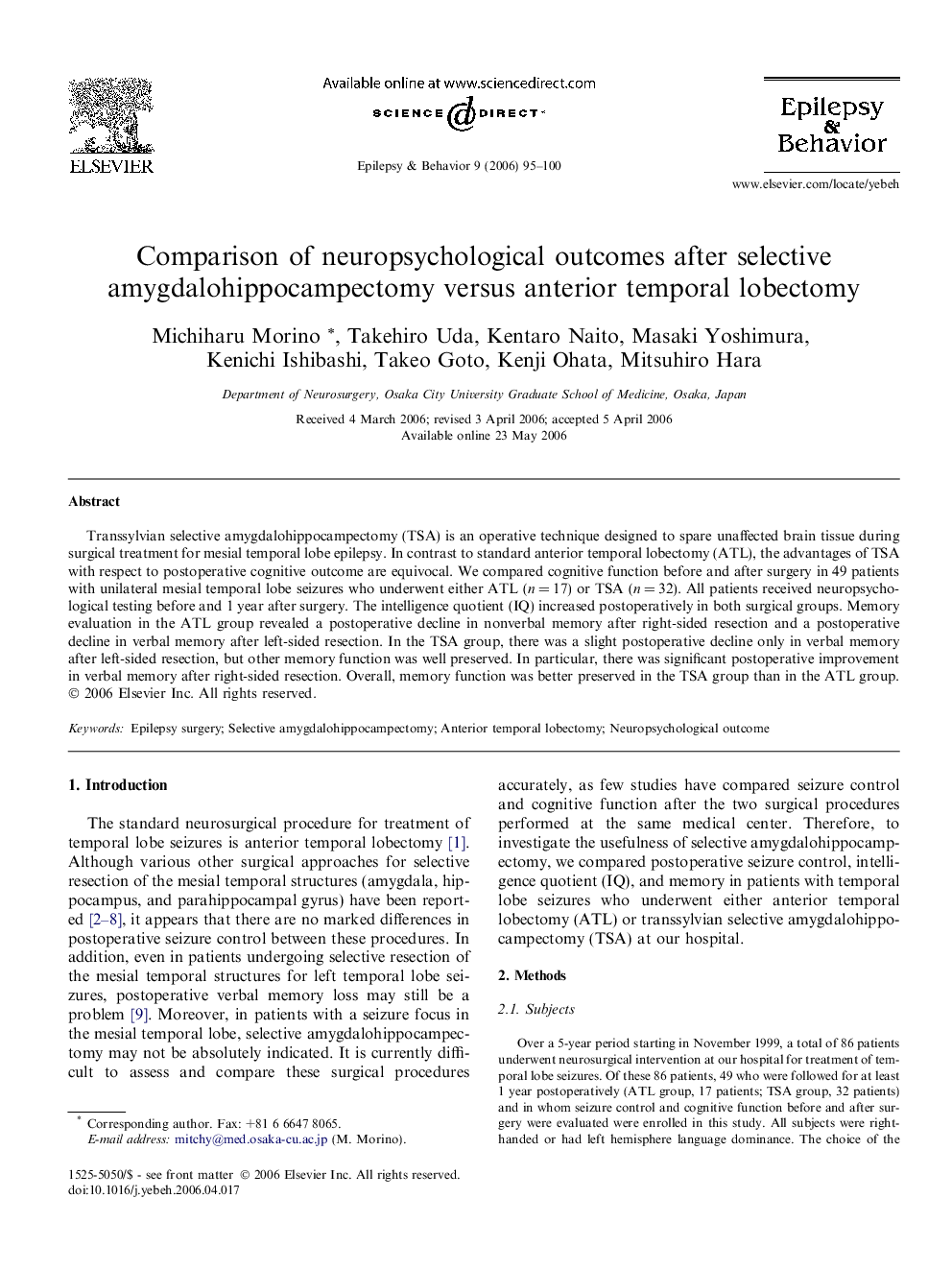| Article ID | Journal | Published Year | Pages | File Type |
|---|---|---|---|---|
| 3051475 | Epilepsy & Behavior | 2006 | 6 Pages |
Transsylvian selective amygdalohippocampectomy (TSA) is an operative technique designed to spare unaffected brain tissue during surgical treatment for mesial temporal lobe epilepsy. In contrast to standard anterior temporal lobectomy (ATL), the advantages of TSA with respect to postoperative cognitive outcome are equivocal. We compared cognitive function before and after surgery in 49 patients with unilateral mesial temporal lobe seizures who underwent either ATL (n = 17) or TSA (n = 32). All patients received neuropsychological testing before and 1 year after surgery. The intelligence quotient (IQ) increased postoperatively in both surgical groups. Memory evaluation in the ATL group revealed a postoperative decline in nonverbal memory after right-sided resection and a postoperative decline in verbal memory after left-sided resection. In the TSA group, there was a slight postoperative decline only in verbal memory after left-sided resection, but other memory function was well preserved. In particular, there was significant postoperative improvement in verbal memory after right-sided resection. Overall, memory function was better preserved in the TSA group than in the ATL group.
